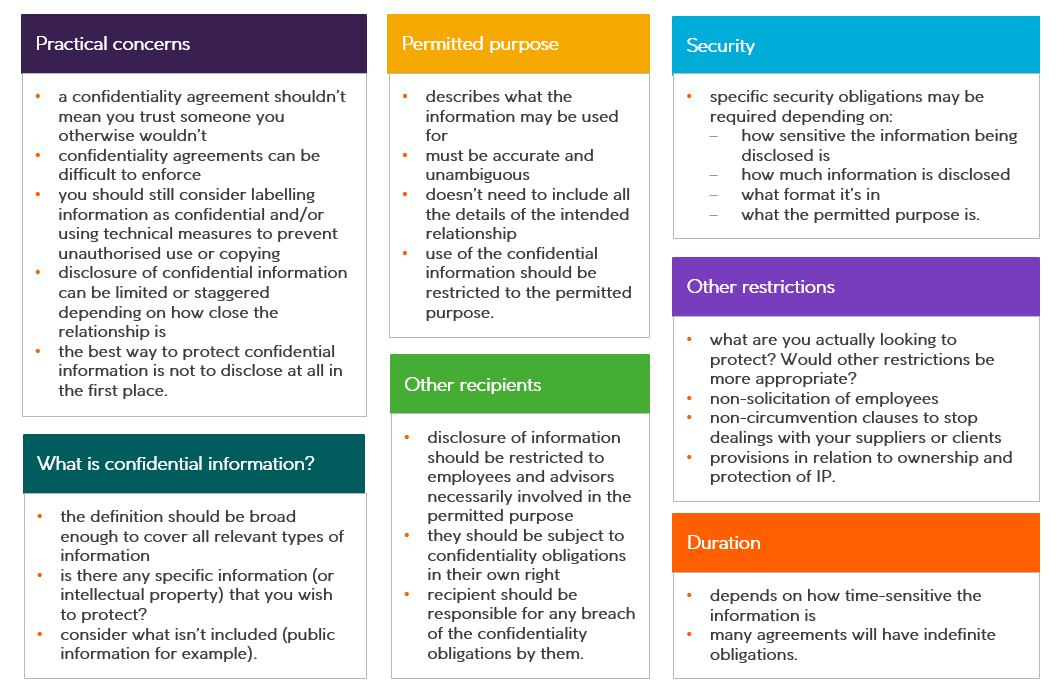Commercial law
Confidentiality agreements
Confidentiality agreements, also called Non-Disclosure Agreements (NDAs), are used to protect confidential information. They can be one-way (where only one side is giving out information) or mutual (where both are).

Guidance on confidentiality agreements
- A confidentiality agreement shouldn’t mean you trust someone you otherwise wouldn’t
- Confidentiality agreements can be difficult to enforce
- You should still consider labelling information as confidential and/or using technical measures to prevent unauthorised use or copying
- Disclosure of confidential information can be limited or staggered depending on how close the relationship is
- The best way to protect confidential information is not to disclose at all in the first place
- The definition should be broad enough to cover all relevant types of information
- Is there any specific information (or intellectual property) that you wish to protect?
- Consider what isn’t included (public information for example)
- Describes what the information may be used for
- Must be accurate and unambiguous
- Doesn’t need to include all the details of the intended relationship
- Use of the confidential information should be restricted to the permitted purpose
- Specific security obligations may be required depending on:
- How sensitive the information being disclosed is
- How much information is disclosed
- What format it’s in
- What the permitted purpose is
- What are you actually looking to protect? Would other restrictions be more appropriate?
- Non-solicitation of employees
- Non-circumvention clauses to stop dealings with your suppliers or clients
- Provisions in relation to ownership and protection of IP
- Depends on how time-sensitive the information is
- Many agreements will have indefinite obligations
Talk to us about
Related services






 Download PDF
Download PDF
